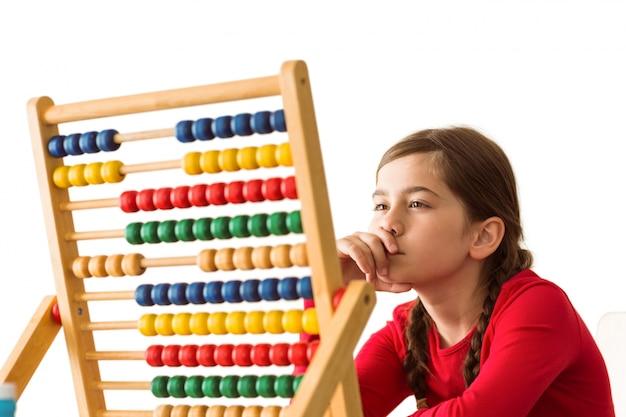When it comes to early childhood education, parents are always on the lookout for innovative and effective ways to enhance their child’s learning experience. One such tool that has gained immense popularity in recent years is the abacus. But what exactly is an abacus, and is it really beneficial for children? In this comprehensive guide, we will explore the world of abacus learning, its benefits, and why it might be worth considering for your child’s educational journey.
The abacus, often referred to as the “first computer,” is an ancient counting device that has been used for centuries to perform calculations. It consists of a series of rods or wires, with beads that can be moved back and forth. The abacus helps children understand and visualize numbers, develop mental math skills, improve memory, and enhance overall cognitive abilities.
But what makes the abacus such a great learning tool for children? How many levels are there in abacus learning? Can adults benefit from learning the abacus as well? How much does an abacus cost? We will answer these questions and more in this comprehensive guide. So, let’s dive in and discover the fascinating world of abacus learning together!

Is Abacus Beneficial for Children?
Abacus – the ancient calculating tool that can make math seem as magical as Hogwarts. But is it actually good for children? Let’s dig a little deeper and count the ways!
Enhancing Mathematical Skills with Abacus
We all know math can be as thrilling as watching paint dry, but the abacus adds a touch of pizzazz to the equation. It helps children improve their arithmetic skills by visualizing numbers and operations. With its beads sliding back and forth, the abacus transforms mundane math problems into an exciting challenge. Plus, let’s not forget the sheer satisfaction of hearing those beads click into place!
Boosting Concentration and Focus
In our fast-paced world full of distractions, teaching children to concentrate can be a Herculean task. But fear not, for the abacus is here to save the day! As children maneuver the beads, they enter a realm of deep concentration where all else fades away. It’s like having a superpower that filters out pesky distractions and keeps the focus on numbers. So long, daydreaming; hello, laser-sharp concentration!
Cultivating Logical Thinking
Logic, that elusive quality we all wish we had more of. Well, guess what? The abacus is like a growth serum for logical thinking! As children manipulate the beads, they learn to analyze problems, recognize patterns, and strategize efficient solutions. It’s like playing a mind-tingling puzzle that sharpens their logic skills, turning them into fearless problem-solving champions!
Building Confidence and Self-esteem
There’s nothing quite like the triumphant feeling of cracking a difficult math problem. With the abacus by their side, children can experience this joy regularly, which in turn boosts their confidence and self-esteem. As they conquer complex calculations, children realize that math is not an unbeatable monster but a conquerable challenge. And you know what they say, confident kids conquer the world!
Improving Memory and Mental Calculation
Are you tired of forgetting where you put your keys or what you had for breakfast? Well, the abacus won’t help you with that, but it sure can improve your memory and mental calculation skills! By visualizing numbers and performing calculations mentally, children develop a memory bank of mathematical operations. Who needs a calculator when you’ve got a brain trained by the abacus?
Fostering Creativity and Fun
Math and creativity seem as distant as Saturn and Earth, but the abacus manages to bridge that cosmic gap. With its colorful beads and rhythmic movements, children’s minds are transported to a realm where math meets art. They can create dazzling patterns with the beads, merging logic and creativity into one harmonious dance. Who said math couldn’t be the life of the party?
The Verdict: Abacus for the Win!
In a world where math often gets a bad rap, the abacus stands tall as a champion of numbers. It enhances mathematical skills, boosts concentration and focus, cultivates logical thinking, builds confidence, improves memory, and fosters creativity. So, if you’re wondering if the abacus is good for children, the answer is a resounding Marry Poppins-style “Supercalifragilisticexpialidocious!” Embrace the abacus, and let your child’s mathematical journey begin!

FAQ: Is Abacus Good for Children?
Are you considering enrolling your child in an abacus course? Wondering if it’s a worthwhile investment of their time and your money? We’ve got you covered! Check out these frequently asked questions to learn everything you need to know about abacus and its benefits for children.
How Many Levels are there in Abacus
The number of levels in abacus can vary depending on the program or curriculum. Generally, there are six levels, starting from beginner and progressing to advanced levels. Each level introduces new concepts and challenges to further develop your child’s mathematical abilities.
Is Abacus Good for Children
Absolutely! Abacus is not only good for children but also great for their overall development. It enhances their mental math skills, concentration, memory, and problem-solving abilities. Learning abacus at a young age can have a significant impact on their academic performance and build a strong foundation for future math studies.
What is the Full Form of SIP Abacus
SIP Abacus stands for “Supreme Intelligence of Precision Abacus”. It is a well-known abacus training program that aims to improve children’s mathematical skills through a structured curriculum and effective teaching methods.
What is Abacus in Very Simple Terms
Abacus is a centuries-old calculating tool that consists of beads or counters arranged on rods or wires. By manipulating these beads, children can perform arithmetic calculations quickly and mentally. It helps them visualize and understand numerical concepts better, making math more tangible and enjoyable.
What are the Features of Abacus
The features of abacus include its simplicity, versatility, and adaptability. It can be used by children of different ages and skill levels. It promotes mental math, improves concentration, fosters logical thinking, develops fine motor skills, and enhances overall brain development.
Is Abacus the First Computer
Although abacus is often referred to as the first computer, it is important to note that it is not an electronic computing device like the computers we use today. Abacus is a mechanical tool that performs mathematical calculations through manual manipulation. It predates modern computers and is considered one of the earliest calculating devices.
What is an Abacus Face
The term “abacus face” is sometimes used to describe the facial expressions of children while using an abacus. The intense concentration and focus required for manipulating the beads can result in a serious or determined facial expression.
What is the Best Age for Children to Learn Abacus
Children as young as four years old can start learning abacus. This is an ideal age for them to absorb new concepts and develop their cognitive skills. However, abacus is suitable for children of all ages, and even adults can benefit from learning this ancient calculating tool.
What is Abacus? Explain its Features in Simple Terms.
Abacus is a mathematical tool that helps children learn and perform arithmetic calculations quickly and accurately. Its key features include its ability to improve mental math skills, promote concentration, enhance logical thinking, develop fine motor skills, and stimulate overall brain development. By using the abacus, children gain a deeper understanding of numbers and mathematical operations.
How Much Does Abacus Cost
The cost of abacus varies depending on various factors such as the program or curriculum, the duration of the course, and additional learning materials provided. Generally, abacus courses range from $100 to $500 per level. It’s important to research and compare different programs to find the one that best fits your child’s needs and your budget.
What is the Meaning of Abacus
The word “abacus” has its origins in the Greek language, where it means “calculating board” or “calculating table.” It reflects the purpose and function of this ancient calculating tool.
Can Adults Learn Abacus
Certainly! While abacus is often associated with children’s education, adults can also benefit from learning it. Not only does it improve mental math skills, but it also enhances concentration, memory, and overall brain function. So, whether you want to sharpen your math abilities or simply enjoy a new challenge, abacus is a fantastic option for adults too.
What are the Benefits of Abacus
The benefits of learning abacus are numerous. It helps children develop strong mental math skills, boosts concentration and focus, enhances memory retention, promotes logical thinking and problem-solving abilities, and stimulates overall brain development. Additionally, abacus instills confidence and enjoyment in mathematics, laying a solid foundation for future academic success.
Which Abacus is Considered the Best
When it comes to choosing the best abacus, it depends on personal preferences and the specific needs of the child. There are various types of abacuses available, such as the soroban, suanpan, and schoty. It’s recommended to consult with abacus experts or trainers to determine the most suitable type of abacus for your child’s learning journey.
Now that you’ve got answers to all your burning questions about abacus, you can make an informed decision regarding your child’s educational path. Embrace the world of abacus and watch your little mathematician flourish!
